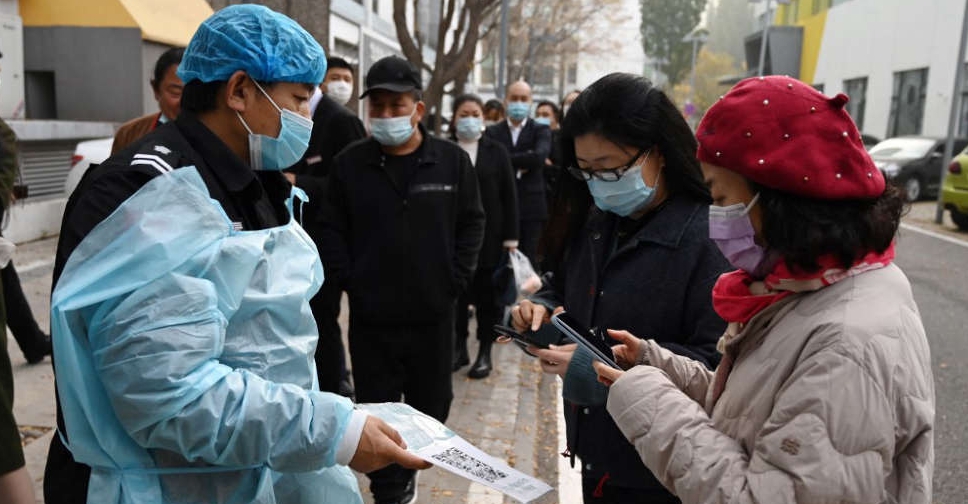
Authorities in Beijing city imposed new curbs on conferences and events after confirming on Thursday six locally transmitted COVID-19 cases, including individuals who had attended conferences in the city.
Beijing has reported fewer than 50 COVID-19 local symptomatic infections in the current outbreak that led to over 1,000 local cases since mid-October, but has taken tough measures to block potential routes of further transmission under China's zero-tolerance policy.
The city is also the host of the Winter Olympics in February.
It has already sealed off some residential compounds and businesses deemed of higher risk, delayed its annual marathon, and demanded fewer activities such as wedding banquets and exhibitions.
"Conferences and events should be held via video whenever possible, and the size of offline events should be minimised," Pang Xinghuo, vice director at the Beijing Center for Disease Prevention and Control, said at a news briefing on Thursday.
Participants of offline conferences should be managed in a "closed loop", meaning they should not leave the venue for other group gatherings or meals and should avoid taking public transport, Pang said.
Offline event organisers should verify participants' COVID test results and check whether they have visited areas with clusters, she said.
China's state-controlled energy giant China National Petroleum Corporation (CNPC) said on Thursday that it had closed an office building and a few facilities in Beijing, after some employees tested positive for the virus.
CNPC, parent of PetroChina, also told staffers who were not present in the closed building to be quarantined at home for a week and work remotely.
As of November 10, mainland China had reported 98,001 COVID-19 cases with confirmed symptoms, including locally transmitted cases and those who arrived from abroad, and 4,636 deaths in total.

 UK inquiry finds 'chilling' cover-up of infected blood scandal
UK inquiry finds 'chilling' cover-up of infected blood scandal
 Iranian President Raisi killed in helicopter accident, state media says
Iranian President Raisi killed in helicopter accident, state media says
 ICC prosecutor seeks arrest warrants for Israeli, Hamas leaders
ICC prosecutor seeks arrest warrants for Israeli, Hamas leaders
 Assange given permission to appeal against US extradition
Assange given permission to appeal against US extradition
 Israel intends to broaden Rafah sweep, Defence Minister tells US
Israel intends to broaden Rafah sweep, Defence Minister tells US




